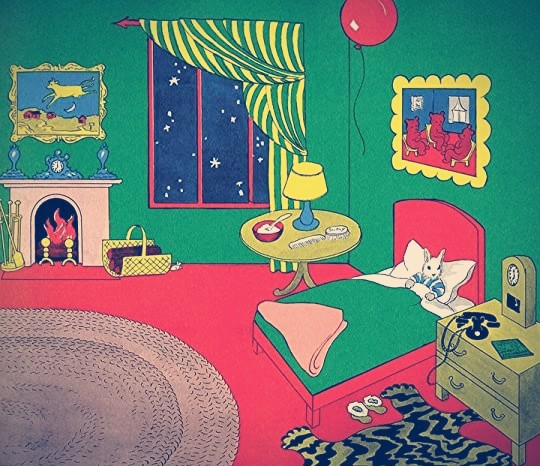Henry has bookmarked this one photograph of a man carrying his child up a hill. The caption said he had traveled with her for days on a dinghy to Greece. Then he walked with her thirty-four miles to the camp. “I don’t think I could do that. I don’t think I’m strong enough,” Henry says. “You are not going to have to walk thirty-four miles with your child on your back,” I tell him.
“But if I did,” he says.
– Jenny Offill, Weather
In the 1620s, Francis Godwin wrote a novel called The Man in the Moone, which tells of a Spanish soldier, forced to flee his country, who goes on a voyage that takes him over oceans, lands, and seas. He faces exile, loss, illness, loneliness, poverty, fear; the unchartedness of the world, of being.
His purpose is to go home, wherever home is; the East Indies, China, back in Spain, somewhere safe … At one point, on an island, he invents a flying machine; attached to twenty-five geese, he takes off, flies for twelve days, and reaches the moon. He lands and finds utopia there.
The moon is 4.5 billion years old. Modern humans: 200,000. There is evidence they began migrating 80,000 years later, seeking water, arable land, fleeing war, persecution. Then they developed language and began telling stories about it.
“We build ladders made of myths and misconceptions, fairy tales and picture books, satellites, spaceships, and probes, cows jumping over goodnight moons … to try to make better sense of where we are and what we’re doing.”
On the moon, in Godwin’s book, the trees are “at least three times so high as ours, and more than five times the breadth and thickness.” The inhabitants are called Lunars. Their language is made of music. “Their females are all of an absolute beauty,” their lovers always in love. There is no sickness, for “there is no wound which may not be cured.” There is death, but no capital punishment. There is justice, happiness. Godwin’s story was not published in his lifetime, and when it was, received little attention.
Today, it is considered one of the great works of the English Renaissance; a foundation for all future science-fiction, picaresque, and utopian writing; a major influence on Jules Verne, Cyrano de Bergerac, Jonathan Swift, Edgar Allan Poe, H.G. Wells; and
in the moon, on the moon; ask for, promise the moon; shoot for, fly me to the moon…
any person since then who has dreamed of, sought home somewhere kinder, higher.
I come from the land of dolls
from under the shade of paper trees
in the garden of a picture book
Fifty-two years and two days ago, twelve people reached the moon (there were no Lunars). Today, 281 million live outside their country of origin. They go, by chance, by choice, by force,
I knew I must I must I must
love madly
on a hope, a fantasy, a story, on the moon, on a rocket, on the wings of twenty-five geese. On a parachute, on a donkey or horse. On a plane, train, bus, ship, rubber dinghy; on two feet, carrying a child for thirty-four miles,
when you arrive at the moon
write the history of the mass murder of the flowers
or a story about a cow jumping over it.
